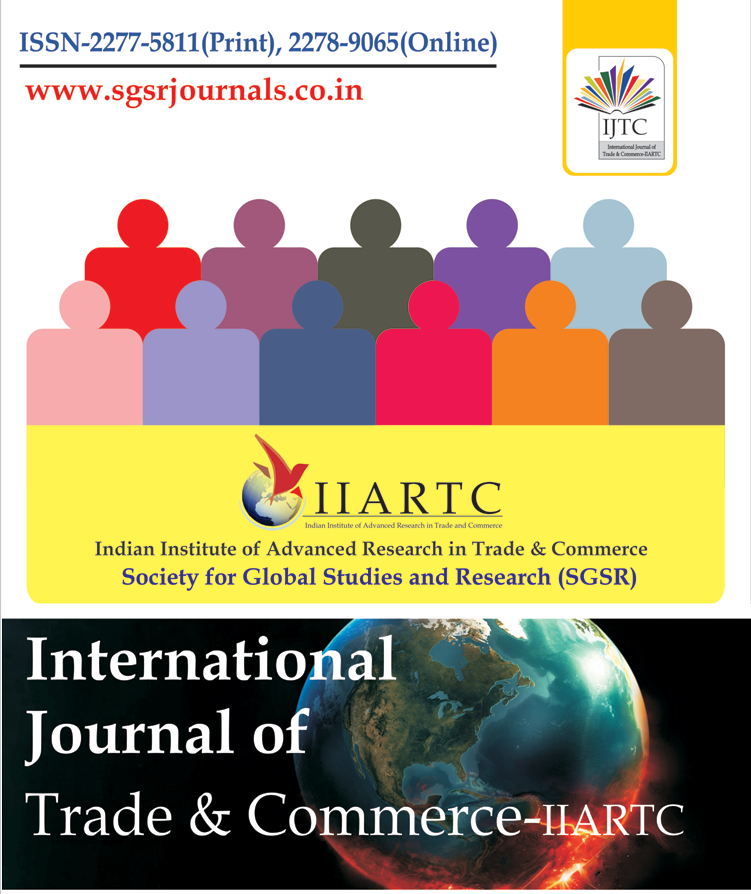Home ⇨ International Journal of Trade & Commerce-IIARTC

International Journal of Trade & Commerce-IIARTC
Impact Factor (IF):5.135 (COSMOS), IF:7.249 (ISRA), IF:3.721 (ISI)
ISSN:2277-5811 (P), ISSN:2278-9065 (O)
Frequency: Half Yearly
Perception of Short-Term Financial Sources for Women Entrepreneurs: An Empirical Study
Investors see very difficult starting conditions, valuation problems, forecasting issues and entrepreneurial opportunism; leading to an undersupply of risk capital for women entrepreneurs. The enterprises run by women tend to be small even by the standards of the informal sector. They are run on a part time basis to allow women to attend to their other social obligations. By virtue of having economic independence, women built up better confidence in the decision-making process of the family. They believed in joint partnership of husband and wife and in some casesin their own capacity independently in different matters of decisionmaking in the family. Yet, the income of these women was not enough to meet the day to day expenditures of the family. Perception of Women Entrepreneurs about short-term financial sources was identified with the help of social variables of age, education, training and family structure of women entrepreneurs. The null hypothesis that the perception of short term sources of finance availed by women entrepreneurs are dependent of the variables of age, education, training and family structure of women entrepreneurs was tested empirically.
Author:T.S. Tomar*
Abstract:Investors see very difficult starting conditions, valuation problems, forecasting issues and entrepreneurial opportunism; leading to an undersupply of risk capital for women entrepreneurs. The enterprises run by women tend to be small even by the standards of the informal sector. They are run on a part time basis to allow women to attend to their other social obligations. By virtue of having economic independence, women built up better confidence in the decision-making process of the family. They believed in joint partnership of husband and wife and in some casesin their own capacity independently in different matters of decisionmaking in the family. Yet, the income of these women was not enough to meet the day to day expenditures of the family. Perception of Women Entrepreneurs about short-term financial sources was identified with the help of social variables of age, education, training and family structure of women entrepreneurs. The null hypothesis that the perception of short term sources of finance availed by women entrepreneurs are dependent of the variables of age, education, training and family structure of women entrepreneurs was tested empirically.




